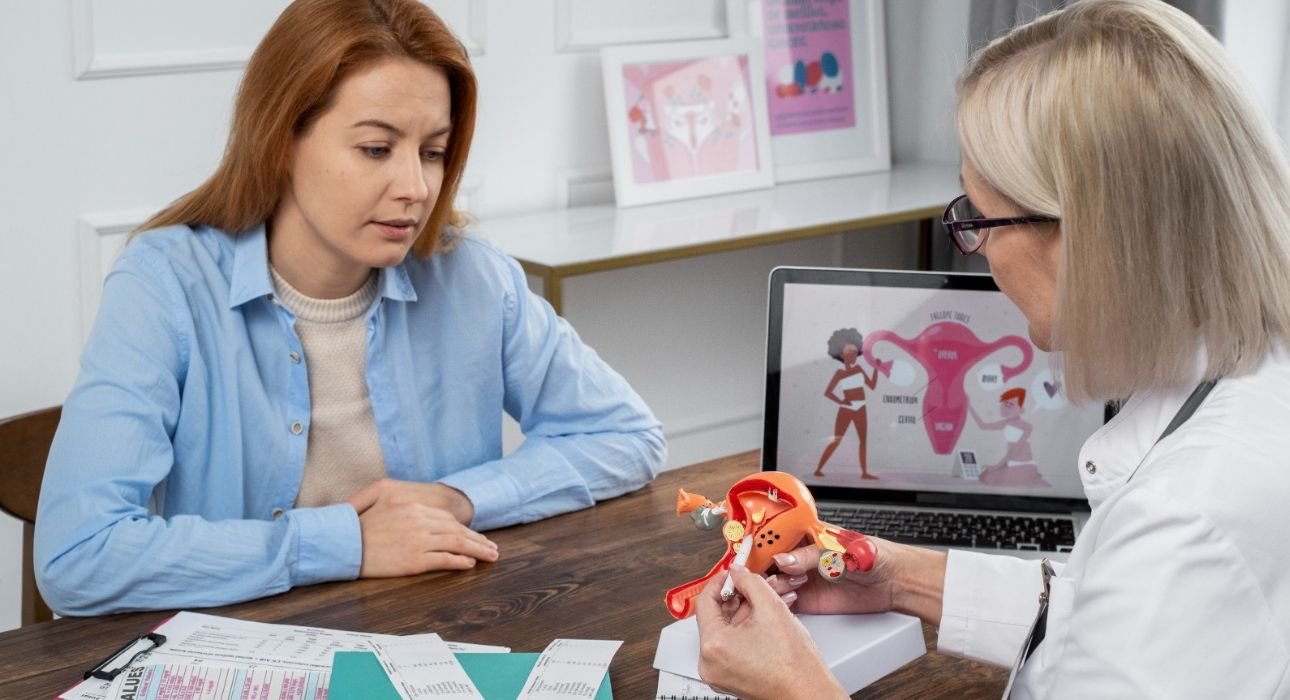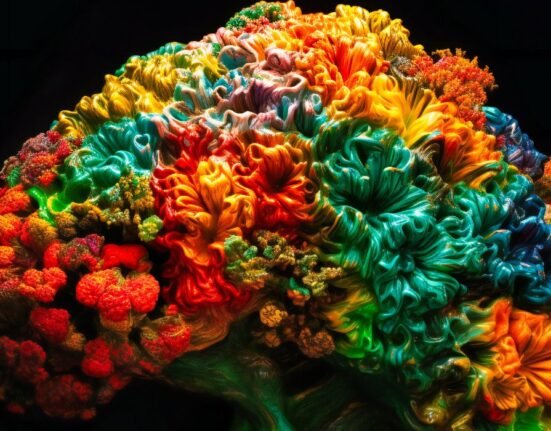Polycystic Ovarian Syndrome (PCOS) is an endocrine condition that is the main cause of female infertility globally. It is a heterogeneous syndrome defined by anovulation (amenorrhea, oligomenorrhea, and irregular periods) associated with androgen excess symptoms such as hirsutism, acne, and hair loss. The syndrome’s name refers to numerous ovarian follicles that resemble cysts.
PCOS causes a large number of follicles to grow. A polycystic ovary is defined as having 12 or more follicles (or cysts) measuring 2-9 mm under ultrasonography. Stein and Leventhal (1935) were the first to identify the reproductive condition known as PCOS. Polycystic Ovarian Syndrome is a complicated endocrine condition that likely involves multiple genes.
Obesity is both a symptom and a contributing factor, and it has been linked to the aggravation of additional symptoms. Depression-related complaints, such as somatic worries, job inhibition, dissatisfaction, and melancholy, were substantially more common in the pain group. Several studies found that 28% to 64% of patients with PCOS experienced depression.
Read More: Study: Women with PCOS at Higher Risk for Suicide
Depression has been linked to higher cortisol levels, more sympathetic activity, and lower serotonin levels in the central nervous system. Diabetics are more likely to suffer from depression than healthy people. Roos et al. (2007) reported the link between insulin resistance and psychiatric distress in the PCOS group.
Azizi and Elyasi(2017) conducted a comparative analysis and concluded that PCOS is connected with a range of disorders, including impaired body image and body dissatisfaction, eating disorders, sexual dysfunction, and decreased quality of life. Based on an unwillingness to employ helplessness, self-blame, and accepting responsibility in their daily lives, which is sometimes referred to as emotion-focused coping.
ACTH and cortisol stress responses were dramatically increased in PCOS. Furthermore, PCOS patients’ heart rates were substantially greater. PCOS patients reported higher psychological distress. Furthermore, these patients exhibited increased HPA-axis and heart rate reactivity in response to stress.
The primary goal of this study is to investigate Introversion, Negative Affectivity, and Psychological Symptoms as psychological indicators of PCOS (Polycystic Ovarian Syndrome) and to determine the degree and direction of the link between these psychological factors and PCOS. The sample comprised 29 girls aged 15-45 years from Gorakhpur, Uttar Pradesh.
The patient group consisted of 14 people suffering from PCOS or its lesser form. Six of these were diagnosed with PCOS, while the remaining eight had moderate PCOS symptoms. Matched groups of 15 subjects were likewise selected. All of the participants in this study were not pregnant and were not entering menopause. Derogatisin developed the Symptom Checklist 90-Revised (SCL-90-R), David Watson, Lee Anna Clark, and Auke Tellegen created the Positive and Negative Affect Schedule (PANAS) in 1988, and the Maudsley Personality Inventory was employed.
Four one-way analyses of variance (ANOVA) were also performed to determine the influence of the group (patient and non-patient) on affect and personality. The primary effect of the group was not found to be significant for Extraversion, Neuroticism, Positive and Negative Affectivity. To examine how and to what extent various personality (viz., neuroticism and extroversion) and affect variables are related with dimensions of SCL-90-R, inter-correlations between personality and affect variables and dimensions of SCL-90-R calculated separately by group wise (patient and control group).
Read More: PCOS and Mental Health
PCOS symptoms have been associated with significant levels of somatization, OCD, interpersonal sensitivity, depression, anxiety, paranoid ideation, and psychoticism. It is also clear that the patient group showed no difference in extraversion, neuroticism, or positive and negative affectivity. However, negative affectivity was found to be significantly correlated with various characteristics of SCL-90-R.
Similarly, neuroticism was associated with numerous SCL-90-R variables in the patient group. Furthermore, Negative Affectivity and Neuroticism appeared as the strongest predictors of symptomatic complaints. Nonetheless, they did not predict somatization or phobic anxiety.
The term “psychosomatic” refers to genuine physical symptoms caused or influenced by the mind and emotions rather than a definite physiological source within the body. Individuals who have experienced stressful events such as trauma, abuse, frequent illness, fear, sadness, wrath, guilt, insecurity, and other challenging conditions, Individuals afflicted are either unable to discharge their feelings appropriately through verbal and other every day means or to erect psychological defenses for the reduction of emotional tension, such as justifying the stress scenario or growing desensitized to it.
The most significant finding of this study is the appearance of somatization as a predictor of the PCOS group. It is interesting to notice that the personality and affect characteristics have not predicted somatization. However, somatization has emerged as a prominent variable to characterize the PCOS group.













Leave feedback about this